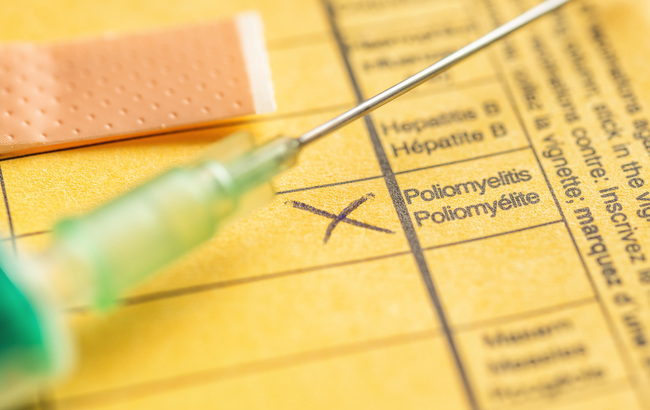World Polio Day 2025: Check Your Vaccination Status – Polioviruses Remain a Global Threat
On 24 October 2025, World Polio Day will be observed to raise public awareness of poliomyelitis (polio), a disease caused by polioviruses. In most people, the infection is asymptomatic, but in some cases the infection leads to severe, sometimes permanent paralysis. Even though polio has been considered eradicated in Germany for decades, it remains important to be vaccinated against polio in this country as well. Because only complete vaccination protection can prevent polioviruses from causing disease in Germany again. The Paul-Ehrlich-Institut, Federal Institute for Vaccines and Biomedicines, marks World Polio Day by reminding of the importance of vaccination against polio.
 Source: Zerbor/Shutterstock
Source: Zerbor/Shutterstock
Since the 1950s, vaccines have provided reliable protection against all three types of poliovirus. According to the World Health Organization (WHO), global cases of polio caused by wild poliovirus have been reduced by more than 99% since 1988. However, in order to achieve the goal of complete eradication, vaccination programmes must be consistently continued and monitored worldwide.
Polio vaccines protect against disease
In Germany, only the inactivated polio vaccine (IPV) has been used since 1998. The IPV vaccination is standard practice throughout Europe and reliably protects vaccinated individuals against the disease. People who are fully vaccinated against polio are protected against both wild poliovirus and circulating vaccine-derived poliovirus (cVDPV). Such cVDPVs can occur when the attenuated but replicable viruses contained in the oral polio vaccine (OPV), which was also used in Europe in the past, are excreted after vaccination and then circulate for a longer period of time in regions with insufficient vaccination coverage among the population. Nevertheless, oral vaccination has contributed significantly to polio being considered eradicated in most regions of the world today.
Vaccination recommended as part of basic immunisation
The Standing Committee on Vaccination (Ständige Impfkommission, STIKO) at the Robert Koch-Institut (RKI) recommends polio vaccination as part of the basic immunisation programme for infants. Primary vaccination is usually carried out with a combination vaccine, which also protects against diphtheria, tetanus, whooping cough (pertussis), Hib (Haemophilus influenzae type B), and hepatitis B. A booster shot during adolescence completes the vaccination protection. Adults with unclear vaccination status or those travelling to high-risk areas should check their vaccination status and, if necessary, get a booster shot with a single IPV vaccine.
Vaccine monitoring and safety
The Paul-Ehrlich-Institut is responsible for the evaluation, authorisation and safety monitoring of vaccines in Germany. This includes batch testing, in which each individual vaccine batch is tested before it is released to the market. In addition to the official batch release, the Paul-Ehrlich-Institut continuously monitors the safety of all authorised vaccines by recording and evaluating reported cases of suspected side effects.



